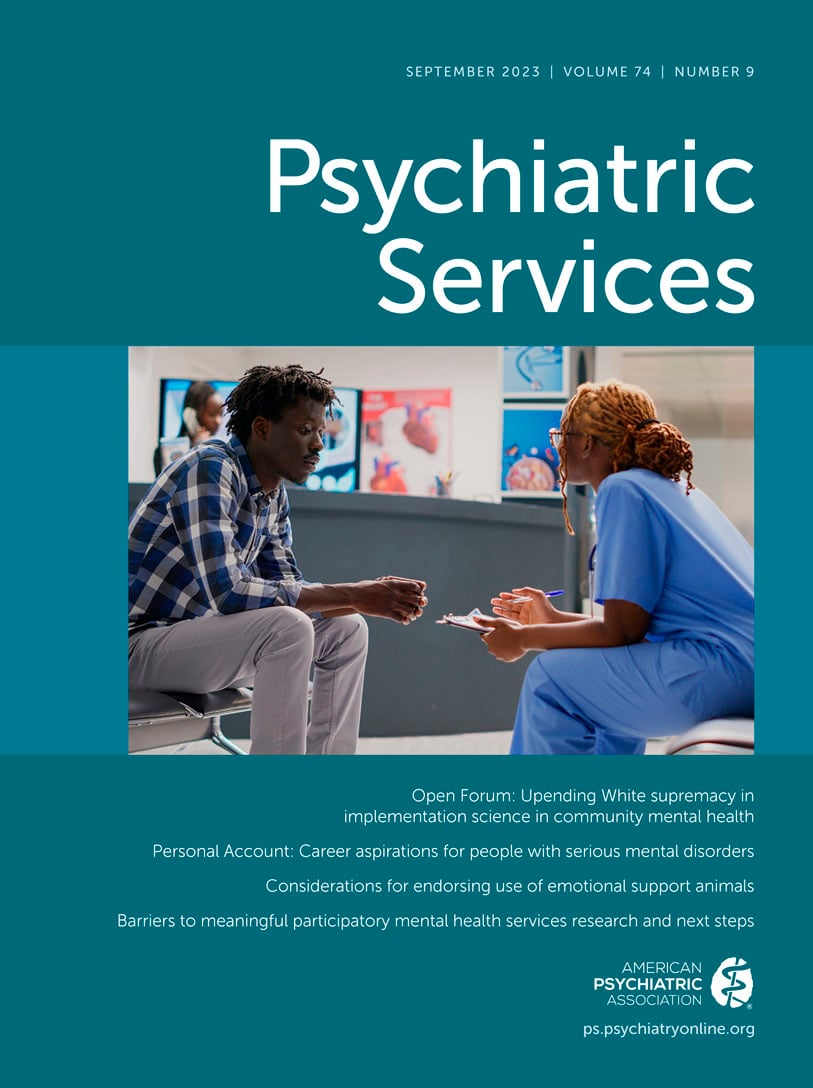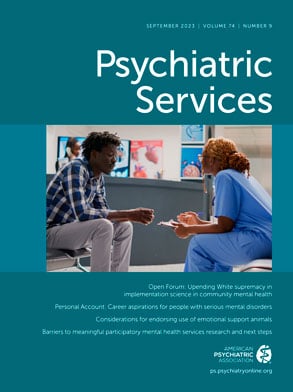This Editor’s Choice collection and others are available online in the Editor’s Choice section of ps.psychiatryonline.org.
The landscape of substance use has changed in recent years. While the opioid crisis has captured national attention (see “Responding to the Opioid Crisis” Editor’s Choice
collection, July 2023), other substance use disorders affect a greater and increasing proportion of the population. Current trends include rising methamphetamine use, expanding legalization of cannabis, and increases in benzodiazepine prescribing.
This month’s Editor’s Choice Collection provides an update on nonopioid substance use disorders. Barriers to diagnosis and treatment of substance use disorders remain, although coverage for services may be increasing and improving disparities. Research on substance use treatment models in Psychiatric Services has focused on integrating care and specific strategies such as contingency management. Although impacts of the COVID-19 pandemic on substance use and treatment access are still being measured, the pandemic likely resulted in increased substance misuse and decreased access to care.
Specific Substance Use Disorders
Benzodiazepine Use and Misuse Among Adults in the United States
Maust DT, Lin LA, Blow FC
Psychiatr Serv 2018; 70(2):97–106
Long-Term Benzodiazepine Use and Discontinuation Among Patients in the U.S. Veterans Health Administration
Timko C, Hoggatt KJ, Esmaeili A, et al.
Psychiatr Serv 2022; 73(11):1217–1224
Walking the Benzodiazepine High Wire
Kroenke K, Hirschtritt ME
Psychiatr Serv 2022; 74(1):73–75
Evidence for Use of Cannabinoids in Mood Disorders, Anxiety Disorders, and PTSD: A Systematic Review
Stanciu CN, Brunette MF, Teja N, et al.
Psychiatr Serv 2021; 72(4):429–436
Informed Consent: A Policy Prescription for Communicating Benefit and Risk in State Medical Marijuana Programs
Messamore E, Dugan SE
Psychiatr Serv 2020; 71(9):941–946
Implementation of Contingency Management at a Large VA Addiction Treatment Center
Ruan H, Bullock CL, Reger GM
Psychiatr Serv 2017; 68(12):1207–1209
Smoking Cessation Medication Prescribing for Smokers With and Without Mental Illness
White SA, Stone E, Murphy KA, et al.
Psychiatr Serv 2022; 74(4):332–340
A Pragmatic Cluster-Randomized Trial of Provider Education and Community Health Worker Support for Tobacco Cessation
Evins AE, Cather C, Maravic MC, et al.
Psychiatr Serv 2023; 74(4):365–373
Trends in Substance Use
Prevalence of Mental Health Needs, Substance Use, and Co-occurring Disorders Among People Admitted to Prison
Butler A, Nicholls T, Samji H, et al.
Psychiatr Serv 2022; 73(7):737–744
Barriers to Diagnosis and Treatment
Addressing Substance Use in Psychiatric Care: An Old Problem With Renewed Urgency
Zisman-Ilani Y, Smith WR, Morris NP
Psychiatr Serv 2022; 74(2):201–203
Uncovering Barriers to Engagement in Substance Use Disorder Care for Medicaid Enrollees
Falgas-Bague I, Zhen-Duan J, Ferreira C, et al.
2023
Access to and Engagement in Substance Use Disorder Treatment Over Time
Liu J, Storfer-Isser A, Mark TL, et al.
Psychiatr Serv 2020; 71(7):722–725
Medicaid Expansion and Racial-Ethnic Health Care Coverage Disparities Among Low-Income Adults With Substance Use Disorders
Olfson M, Mauro C, Wall MM, et al.
Psychiatr Serv 2022; 74(6):604–613
New Research on Treatment Approaches
Integration of Substance Use Disorder Treatment Into a Traditional Community Mental Health Treatment System
Oviedo E, Means RF, Lilley-Haughey K, et al.
Psychiatr Serv 2023; 74(7):774–777
Sustainment of Integrated Care in Addiction Treatment Settings: Primary Outcomes From a Cluster-Randomized Controlled Trial
Chokron Garneau H, Assefa MT, Jo B, et al.
Psychiatr Serv 2022; 73(3):280–286

